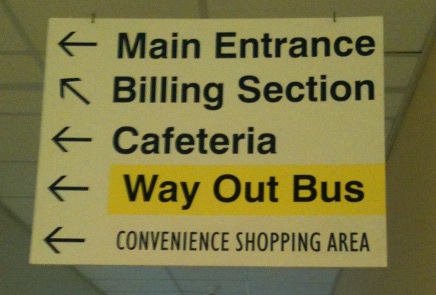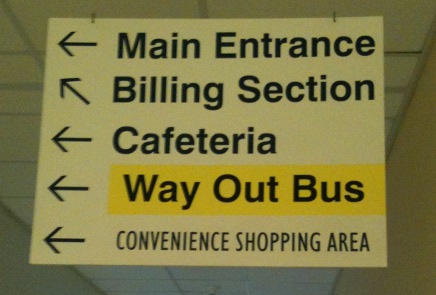
Unfortunately, you find it hard to ignore them afterwards. They may be little things, an unfortunate use of language, for example. The sort of thing that would usually just brush past you, ignored, abandoned to the well-deserved dustbin of history.
So – recently, I have had the dubious pleasure of spending time at Malta’s brand new hospital, Mater Dei. Yes, it is a more welcoming building than St Luke’s was. And yes, the architects and planners really did care deeply about people not getting enough exercise: you clock up a mile of stiff walking between the entrance and the wards.
It is the lifts that first introduce a note of alarm. You get out of your car down in the bowels of the earth, walk across to the lifts, get it. You press “0” for the ground floor and the exit. The doors close (it sometimes takes two attempts). You rise.
So far so good. All normal, you assume – until the mechanized voice comes on with a warning: “Zero floor”. You panic: what will happen when you step out of the lift? Is there a deep pit there, waiting for unwary visitors?
Then the doors open; to your relief, the ground is solidly in place, even coated with reasonably attractive marble flooring.
Now you have got your bearings back, you feel safe. Surely that was the worst the hospital could throw at you (other than medically, of course). You would be mistaken.
You follow the long corridor leading to the reception area. It’s easy to do: there are signs all over the place pointing you in the right direction. Then, the final turn approaches. You look up at the sign, just to make sure, and you read (after the wards and so on) “Way Out Bus”.
With the best will in the world, you cannot just ignore this. What is a “Way Out Bus”? you wonder. And why on earth is everyone just drifting on past, ignoring it?
I have yet to see this “Way Out Bus”. I had initially assumed that at least one person must at some point in his life actually seen it, maybe even ridden on it. I have not been able to find him (ok, let’s not be sexist – or her). In fact, I am beginning to think it may be a wholly mythological machine.
This view is supported by further signage along the lengths of corridor at the hospital. There, you find just “Way Out”. The “Bus” has disappeared.
Your departure from the hospital is a little less dramatic. You pass gently under the sign to the mysterious “Way Out Bus”, you reach the lifts. You pay your dues, and get into a lift – yes, the very same one that announced to you earlier that there was no floor on the other side of its doors. Again, the lift seems a bit hesitant: the doors slide shut but, before beginning its short downward trip, they open again. So be it.
Eventually you get to the lower fourth floor, where you had innocently left your car. Because, of course, you were not expecting the lift to announce to you, before opening its doors and in a faintly tinny, feminine voice, that before you there is “Minus four floor”.




